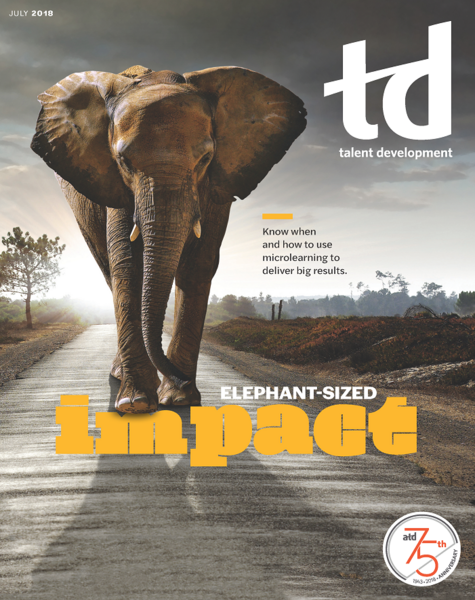TD Magazine Article
Share the Knowledge
Knowledge transfer helps keep your organization in the game.
Mon Jul 02 2018
Technological advances "create work environments that change extremely quickly, making it more and more challenging for people to keep up," writes Chris Cancialosi in "Knowledge Transfer: The Key to Organizational Resilience and Agility." He continues: "Organizations must develop the ability to move quickly and to minimize disruptions that stem from the loss of intellectual capital associated with knowledge workers departing the organization." In other words, knowledge transfer is critical to today's workplace.
Talent development practitioners have an essential role in effective knowledge transfer. Among the ways:
Encourage managers to develop their own knowledge management plans.
Identify employees to attend conferences or other learning events on knowledge management and effective knowledge transfer to learn best practices, which they can then share with the team or department.
Take matters into your own hands and create and communicate a formalized knowledge transfer approach for the organization. For example, develop an alumni continuity program to create company-wide conditions to foster and cultivate a long-term connection to former employees.
Facilitate education and awareness sessions to illustrate the importance of effective management, supplying job aids to help employees capture explicit and tacit knowledge, and assisting them with developing a succession plan for each employee, as appropriate.
Knowledge transfer can occur in many ways, such as job aids, podcasts, coaching, storyboards, storytelling, hackathons, and collaborative learning spaces.
These tips were adapted from the July 2018 issue of TD at Work. Learn more at www.td.org/TDatWork.

